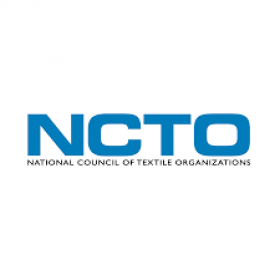NCTO elects new Chairman and Vice Chairman
The National Council of Textile Organizations (NCTO), representing the full spectrum of U.S. textiles from fiber through finished sewn products, held its officer elections for fiscal year 2024 at its annual meeting April 9-11.
NCTO has elected Charles Heilig, President of Parkdale Mills, as Chairman; and Chuck Hall, President and CEO of Barnet, as Vice Chairman.
In addition to the appointment of a new chairman and vice chairman, NCTO elected chairs for each of its five councils. NCTO is comprised of five councils to ensure a broad representation of the industry supply chain. Each council has an allotted number of members who are elected to the association’s Board of Directors, in addition to the Executive Committee.
Elected as NCTO Chairman and Vice Chairman for 2024:
- Chairman – Charles Heilig, President of Parkdale Mills based in Gastonia, North Carolina, a leading American manufacturer of yarn and cotton consumer products.
- Vice Chairman – Chuck Hall, President and CEO of Barnet based in Spartanburg, South Carolina, a 125-year-old manufacturer of technical textiles.
Elected to the NCTO Board of Directors:
- Fiber Council – David Adkins of Lenzing; John Freeman of Nan Ya Plastics; and Melissa Stewart of The LYCRA Company
- Yarn Council – Justin Ferdinand of Kentwool; Peter Iliopoulos of Gildan; Eddie Ingle of Unifi; Eric Noe of Buhler Quality Yarns; Marvin Smith of Shuford Yarns; and Jay Todd of Service Thread
- Fabric and Home Products Council – David Smith of Milliken & Company; James McKinnon of Cotswold Industries; Blake Millinor of Valdese Weavers; Leib Oehmig of Glen Raven; Dan Russian of Sage Automotive Interiors; and Walter Spiegel of Standard Textile
- Finished Textiles and Apparel Products Council – Marisa Fumei-South of Two-One-Two New York (Alternate: Gabrielle Ferrara of Ferrara Manufacturing)
- Industry Support Council – Todd Bassett of Fi-Tech; Greg Duncan of American Truetzschler; and Jim Reed of YKK Corp.
Elected by their respective Councils to serve on the Executive Committee:
David Adkins, Lenzing; Eddie Ingle, Unifi; Marvin Smith, Shuford Yarns; David Smith, Milliken & Company; James McKinnon, Cotswold Industries; Marisa Fumei-South, Two-One-Two New York; Gabrielle Ferrara, Ferrara Manufacturing; and Todd Bassett, Fi-Tech.
NCTO Chairman Charles Heilig has elected additional executives to serve on the Executive Committee: Anderson Warlick of Parkdale Mills; Norman Chapman of Inman Mills; John Maness of Gildan; Amy Bircher Bruyn of MMI Textiles; and Jackie Ferrari of American Fashion Network.
Elected to chair the Councils:
- Fiber Council: David Adkins of Lenzing
- Yarn Council: Justin Ferdinand of Kentwool
- Fabric and Home Products Council: David Smith of Milliken & Company
- Finished Textiles and Apparel Products Council: Marisa Fumei-South of Two-One-Two New York.
- Industry Support Council: Todd Bassett of Fi-Tech
NCTO National Council of Textile Organizations U.S. textile industry USA Chairman Board of Directors
National Council of Textile Organizations















